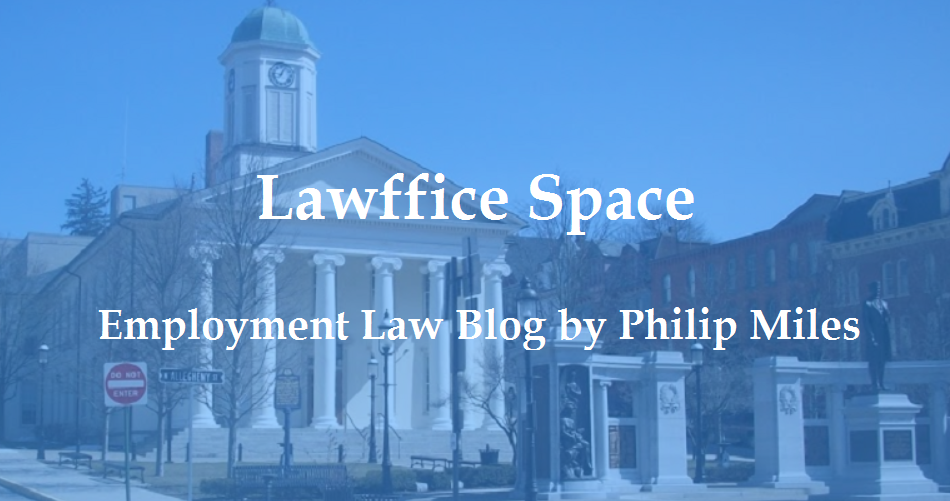Recap
First, an entry on Sherbert v. Verner in which the Supreme Court held a state requirement that an employee be able to work on Saturday to be eligible for unemployment compensation was unconstitutional where the employee was unavailable because his religious beliefs prohibited work on Saturdays.
I then moved on to do two entries, Hobbie I and Hobbie II, in which the Supreme Court held that an employee fired for refusing to work on Saturdays (for religious observance) could not be denied unemployment compensation under the First Amendment. I noted that the statute merely required the employee to comply with the employer's standards and did not directly interfere but the Court did not address this direct/indirect distinction.
I then moved on to do two entries, Hobbie I and Hobbie II, in which the Supreme Court held that an employee fired for refusing to work on Saturdays (for religious observance) could not be denied unemployment compensation under the First Amendment. I noted that the statute merely required the employee to comply with the employer's standards and did not directly interfere but the Court did not address this direct/indirect distinction.
Speech Analysis
So here we are. The Supreme Court has essentially said that unemployment compensation cannot be denied when a private employer's reason for terminating an employee violates the First Amendment Free Exercise Clause (even though state action is generally necessary to violate the First Amendment).
What if an employee gets terminated, not for religious observance, but for speech? After all, free speech is another right enumerated in the First Amendment. Enter Griffin v. New Hampshire Dept. of Employment Sec., 09-cv-00250-SM (D.N.H. Nov. 16, 2009)(.pdf). Among other claims, Griffin, a radiology technician, alleged he was denied unemployment compensation following his termination for making political comments to a patient.
Griffin allegedly bothered a patient by talking about Obama and the need to stockpile food and guns. Not surprisingly... but perhaps unconstitutionally... Griffin was found to be terminated for "misconduct" making him ineligible for unemployment benefits. The Court cited Hobbie in applying the First Amendment Free Exercise Clause to UC hearings, and De Grego v. Levine, 362 N.Y.S. 2d 207 (N.Y. App. Div. 1974) for extending this reasoning to political speech.
The Court then analogized to public employee free speech cases! My own view is that public employee free speech is an extremely complex area of the law (or perhaps just inconsistent). One of the mainstays of public employee free speech, however, is the Pickering test which balances the right to speak as a private citizen on matters of public concern against the public employer's interest in "promoting the efficiency of the public services it performs."
Here's where the First Amendment application gets a little clunky... there is no public employer; the statutory framework's efficiency is wholly unrelated to the private employer's efficiency; and there are no "public services" provided by the private employer! It's not clear why we analyze this as a public employee case and not a statutory infringement of speech case... after all, it's supposedly the unemployment compensation statute's definition of "misconduct" that's at issue, right?
In the coming entries I'll have some fun with future applications of this legal framework, and apply a private/public distinction that would avoid this problem of "Constitutionalizing" private actions.

No comments:
Post a Comment